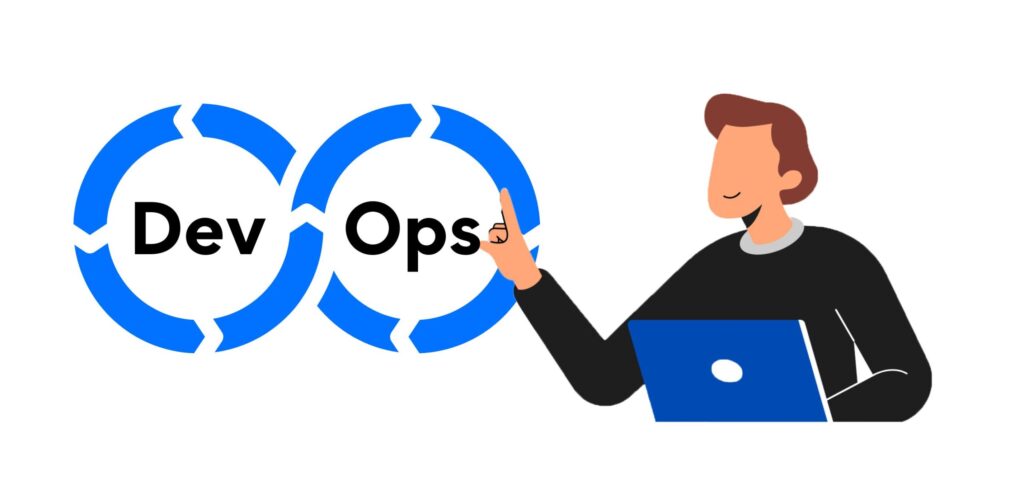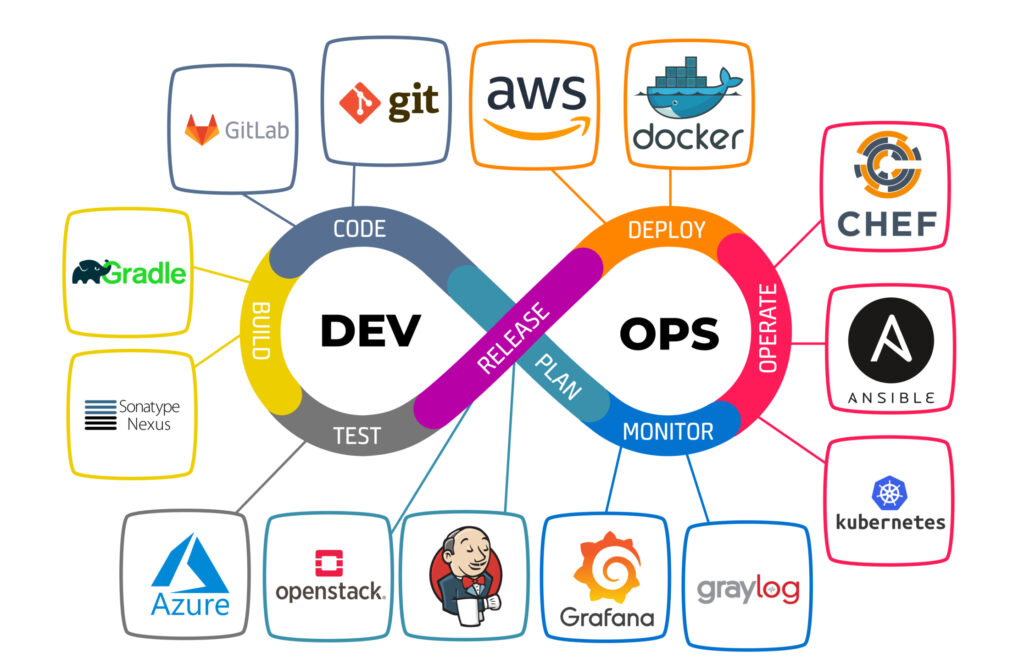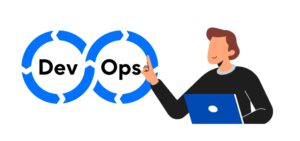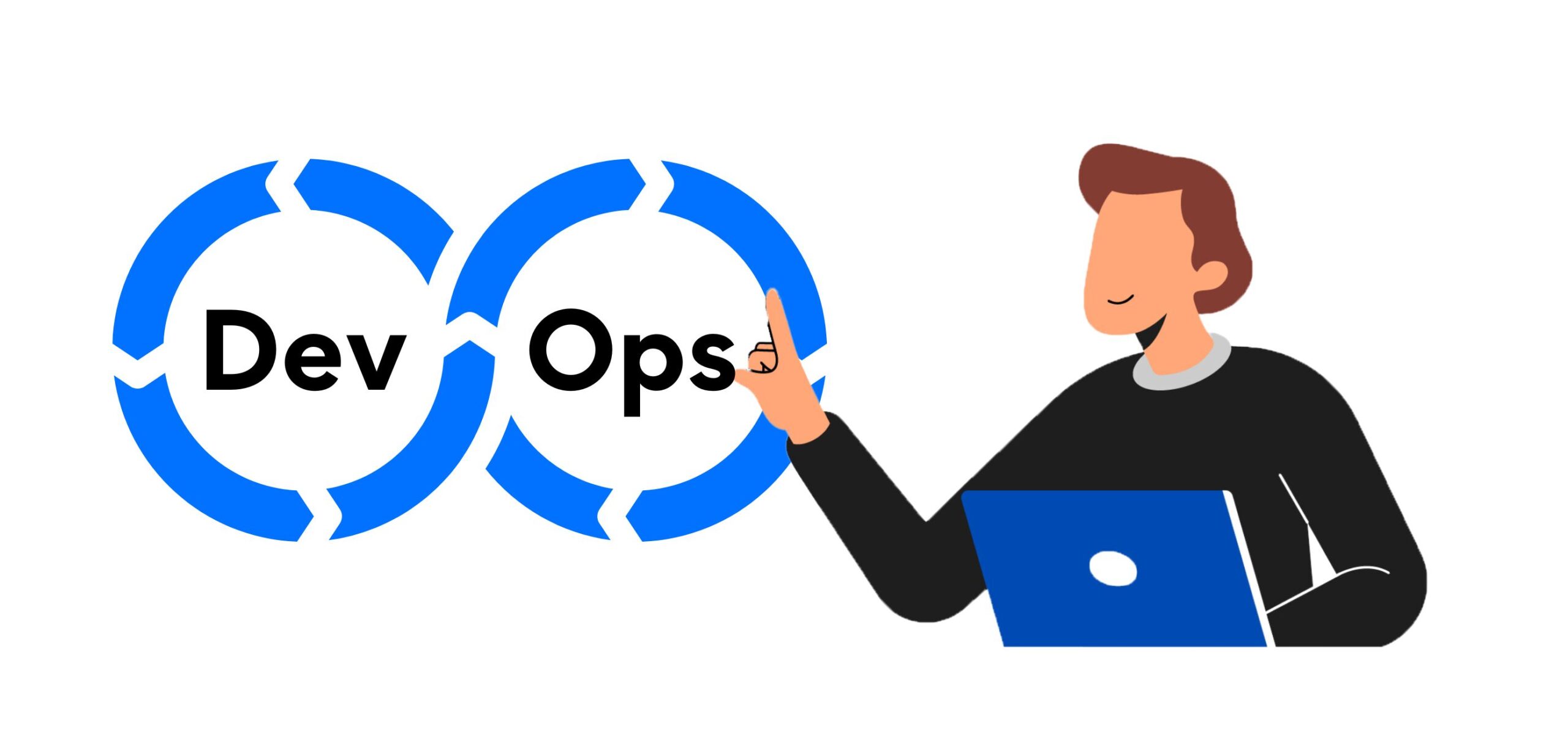Discover the essential steps for a successful career switch to a DevOps Engineer role. This comprehensive guide covers everything from technical skills and certifications to networking and interview preparation. Start your DevOps journey today!
Table of Contents
Introduction
In the ever-evolving landscape of IT, transitioning to a DevOps Engineer role can significantly enhance your career prospects. DevOps, which integrates software development and IT operations, aims to shorten the development lifecycle and provide continuous delivery with high software quality. This article will guide you through the essential steps to prepare for a successful switch to a DevOps Engineer role.
Understanding DevOps Engineer role
Definition of DevOps
DevOps is a set of practices that combines software development (Dev) and IT operations (Ops). It aims to automate and integrate the processes between software development and IT teams, enabling them to build, test, and release software faster and more reliably.

Key Principles of DevOps
- Collaboration and Communication: Breaking down silos between development and operations teams.
- Continuous Integration and Continuous Delivery (CI/CD): Automating the integration and deployment processes.
- Infrastructure as Code (IaC): Managing and provisioning computing infrastructure through machine-readable definition files.
- Monitoring and Logging: Continuously monitoring systems and applications for operational insights.
Importance of DevOps in Modern IT Infrastructure
DevOps Engineer plays a critical role in modern IT by ensuring faster delivery of applications and services, improving collaboration between teams, and enhancing overall operational efficiency. It helps organizations respond more swiftly to market changes and customer demands, providing a competitive edge.
Self-Assessment and Goal Setting
Identifying Your Current Skill Set
Start by evaluating your existing skills and identifying gaps that need to be filled for a DevOps Engineer role. Key areas to assess include your knowledge of programming languages, familiarity with automation tools, understanding of cloud platforms, and experience with CI/CD pipelines.
Setting Realistic Goals for the Transition
Establish clear and achievable goals to guide your learning and development process. Set milestones such as completing specific certifications, mastering certain tools, or contributing to open-source projects.
Importance of Continuous Learning
In the fast-paced world of DevOps, continuous learning is essential. Stay updated with the latest tools, practices, and industry trends by participating in training programs, attending webinars, and reading industry blogs and articles.

Technical Skills Required
Coding and Scripting
Understanding programming and scripting languages is fundamental in DevOps. Focus on languages commonly used in automation and configuration management, such as Python, Ruby, and Go.
Automation Tools
Automation is at the heart of DevOps. Familiarize yourself with popular tools such as Jenkins for continuous integration, Ansible, Puppet, and Chef for configuration management, and Terraform for infrastructure as code.
Containerization and Orchestration
Containers streamline the deployment process by ensuring consistency across multiple environments. Learn Docker for containerization and Kubernetes for orchestrating containerized applications.
Cloud Computing
DevOps heavily relies on cloud platforms. Gain proficiency in leading cloud services like AWS, Azure, and Google Cloud Platform (GCP). Understand core services, including compute, storage, and networking, as well as DevOps-specific tools offered by these platforms.
Monitoring and Logging
Effective monitoring and logging are crucial for maintaining system reliability and performance. Get hands-on experience with tools such as Prometheus and Grafana for monitoring, and the ELK Stack (Elasticsearch, Logstash, Kibana) for logging and visualization.
Soft Skills Required
Communication
Effective communication is vital in DevOps, where collaboration between cross-functional teams is a daily necessity. Work on improving both your verbal and written communication skills.
Collaboration
DevOps is all about teamwork. Learn to work efficiently with different teams, including developers, QA, and operations. Familiarize yourself with collaboration tools like Slack and Microsoft Teams to enhance teamwork and project coordination.
Problem-Solving
Strong problem-solving skills are essential in DevOps to troubleshoot and resolve issues quickly. Develop a proactive approach to identifying and fixing problems, and cultivate a mindset of continuous improvement.
Certifications and Training
Popular DevOps Certifications
- AWS Certified DevOps Engineer: Focuses on provisioning, operating, and managing distributed application systems on the AWS platform.
- Certified Kubernetes Administrator (CKA): Validates skills required to be a Kubernetes administrator.
- Google Professional DevOps Engineer: Demonstrates expertise in managing efficient development operations that can balance service reliability and delivery speed.
Online Courses and Resources
Utilize online learning platforms like Coursera, Udemy, and edX to find comprehensive courses on DevOps. Recommended courses include “DevOps Foundations” on LinkedIn Learning, “Docker and Kubernetes: The Complete Guide” on Udemy, and Google’s “SRE and DevOps Engineer with Google Cloud” on Coursera.
Building a DevOps Portfolio
Projects to Showcase
Work on real-world projects that demonstrate your ability to implement DevOps Engineer practices. Examples include setting up a CI/CD pipeline using Jenkins, deploying applications with Docker and Kubernetes, and managing infrastructure with Terraform.
Using GitHub
Create a professional GitHub profile and showcase your projects. Include detailed README files, documentation, and contributions to open-source projects to highlight your skills and experience.
Networking and Community Involvement
Joining DevOps Communities
Engage with online DevOps Engineer communities such as Reddit’s r/devops, Stack Overflow, and DevOps.com. Participating in these forums can provide valuable insights, advice, and networking opportunities.
Attending Conferences and Meetups
Attend industry conferences and local meetups to network with other professionals, learn from experts, and stay updated with the latest trends. Notable events include KubeCon, DevOpsDays, and AWS re.
Preparing for Interviews
Common DevOps Interview Questions
Prepare for interviews by reviewing common DevOps questions. Practice answering questions on topics like CI/CD pipelines, containerization, cloud services, and troubleshooting.
Mock Interviews
Conduct mock interviews to practice your responses and get feedback. Use platforms like Pramp or seek help from friends or mentors to simulate real interview scenarios.
Crafting an Impressive Resume
Key Elements to Include
Tailor your resume to highlight relevant DevOps Engineer experience and skills. Include sections on technical skills, certifications, notable projects, and professional experience.
Cover Letter Tips
Craft a compelling cover letter that demonstrates your passion for DevOps, highlights your achievements, and explains why you are a good fit for the role. Personalize each cover letter for the specific job you are applying for.
Job Search Strategies
Identifying Target Companies
Research companies that have a strong DevOps culture. Use job boards, company websites, and LinkedIn to find job openings that match your skills and interests.
Networking for Job Opportunities
Leverage your professional network to uncover job opportunities. Connect with former colleagues, attend industry events, and use LinkedIn to build relationships with potential employers.
Onboarding and Continuous Improvement
First 90 Days in a DevOps Role
Set clear goals for your first 90 days in a new DevOps role. Focus on understanding the company’s processes, building relationships with your team, and identifying areas for improvement.
Continuous Learning and Development
Stay committed to ongoing learning and professional development. Regularly attend training sessions, participate in workshops, and stay updated with the latest industry trends and tools.
Personal Stories or Case Studies
Success Stories
Learn from real-life examples of individuals who successfully transitioned to a DevOps role. These stories can provide inspiration and practical insights into the challenges and rewards of a DevOps career.
Expert Insights
Quotes from Industry Professionals
Gather advice and insights from experienced DevOps engineers. Their perspectives can offer valuable guidance on navigating the DevOps landscape and advancing your career.
Conclusion
Transitioning to a DevOps role requires a combination of technical skills, soft skills, and a commitment to continuous learning. By following the steps outlined in this article, you can effectively prepare for a successful career in DevOps. Embrace the journey, stay curious, and continuously strive for improvement.
To connect and get more personalised information to get Devops Engineer role, Follow link



A powerful share, I simply given this onto a colleague who was doing just a little evaluation on this. And he in truth purchased me breakfast as a result of I discovered it for him.. smile. So let me reword that: Thnx for the deal with! However yeah Thnkx for spending the time to debate this, I really feel strongly about it and love reading more on this topic. If attainable, as you turn out to be experience, would you mind updating your weblog with more details? It’s extremely useful for me. Huge thumb up for this weblog submit!
Thanks for your feedback. Please comment, which topic or tools of DevOps,do you want to explore further? I will try to post blog on that.
Some genuinely nice stuff on this internet site, I like it.
Great tremendous issues here. I am very satisfied to peer your article. Thank you so much and i’m taking a look ahead to touch you. Will you kindly drop me a mail?
thanks! check your mailbox
I love it whenever people come together and share opinions.
Great site, keep it up!
hello!,I like your writing very much! share we communicate more about your post on AOL? I need an expert on this area to solve my problem. Maybe that’s you! Looking forward to see you.
Thank you so much for your kind words! I’m really glad to hear you enjoyed my writing. I’d be happy to discuss your problem on AOL and see how I can assist you. Feel free to share more details about what you’re looking for, and I’ll do my best to help out. Looking forward to connecting!
First off I would like to say wonderful blog! I had a quick
question that I’d like to ask if you don’t mind.
I was interested to find out how you center yourself and
clear your mind before writing. I’ve had trouble clearing my thoughts in getting my ideas out.
I do take pleasure in writing but it just seems like the first 10 to 15 minutes are usually lost just trying to
figure out how to begin. Any suggestions or tips?
Appreciate it!
I appreciate your nice remarks and am happy that you found the article enjoyable.
Regarding focussing before writing, I can certainly relate to how difficult it may be to get started and clear your head. What helps me is this:
Establish a Clear Intention: I take a few minutes to consider my goals for the piece before I start writing. A defined objective aids in guiding the flow of ideas in any type of writing, including blog posts, articles, and emails.
Take a Deep Breath and Relax: I’ve found that a quick mindfulness exercise or a few deep breaths may really assist focus and relax the mind. Stretching for a few minutes or taking a quick stroll might occasionally be a helpful reset.
Start with a Rough Outline: If you’re having trouble coming up with an outline, consider writing down the main ideas you wish to discuss. At this point, you shouldn’t be concerned with perfection or order. This can help the writing feel less overwhelming by dividing the process into smaller, more manageable chunks.
Just Start Writing: Sometimes, starting a piece without caring about its perfection is the greatest way to overcome that initial barrier. You can always edit your first draft later, even if it seems rough. The hardest aspect, in my experience, is usually getting the words on the page; once they are, the flow gets easier.
Remove Distractions: Being in an environment devoid of distractions makes it simpler to focus. Using features like “Do Not Disturb” on my gadgets and putting my phone aside help me focus and settle into a routine more quickly.
I hope these tips help! Writing is often a process of letting the ideas come naturally, and it’s okay if it takes a little time to get going. Keep at it, and the flow will follow
Nice post. I be taught one thing tougher on completely different blogs everyday. It should all the time be stimulating to learn content material from other writers and practice slightly something from their store. I’d prefer to use some with the content material on my weblog whether or not you don’t mind. Natually I’ll provide you with a hyperlink in your web blog. Thanks for sharing.
Great write-up, I am regular visitor of one’s website, maintain up the excellent operate, and It is going to be a regular visitor for a lengthy time.
Hmm it appears like your site ate my first comment (it was super long) so I guess I’ll just sum it up what I wrote and say, I’m thoroughly enjoying your blog. I as well am an aspiring blog writer but I’m still new to everything. Do you have any helpful hints for first-time blog writers? I’d definitely appreciate it.
Great write-up, I’m normal visitor of one’s site, maintain up the excellent operate, and It is going to be a regular visitor for a long time.
I got good info from your blog
Very interesting details you have remarked, thanks for posting.
I would like to thnkx for the efforts you have put in writing this blog. I am hoping the same high-grade blog post from you in the upcoming as well. In fact your creative writing abilities has inspired me to get my own blog now. Really the blogging is spreading its wings quickly. Your write up is a good example of it.
Thanks for your words!!
Wow! Thank you! I permanently wanted to write on my site something like that. Can I implement a portion of your post to my site?
Thanks! you can use, I just want to spread the information.
There is clearly a lot to identify about this. I think you made certain good points in features also.
Hi there just wanted to give you a quick heads up. The words in your post seem to be running off the screen in Opera. I’m not sure if this is a format issue or something to do with browser compatibility but I figured I’d post to let you know. The layout look great though! Hope you get the problem fixed soon. Thanks
Thanks for letting me know the issue. I will check and fix it.
Today, I went to the beach with my children. I found a sea shell and gave it to my 4 year old daughter and said “You can hear the ocean if you put this to your ear.” She put the shell to her ear and screamed. There was a hermit crab inside and it pinched her ear. She never wants to go back! LoL I know this is totally off topic but I had to tell someone!
Yay google is my queen assisted me to find this outstanding site! .
I wanted to thank you for this great read!! I definitely enjoying every little bit of it I have you bookmarked to check out new stuff you post…
I discovered your blog site on google and check a few of your early posts. Continue to keep up the very good operate. I just additional up your RSS feed to my MSN News Reader. Seeking forward to reading more from you later on!…
Wow that was unusual. I just wrote an extremely long comment but after I clicked submit my comment didn’t show up. Grrrr… well I’m not writing all that over again. Regardless, just wanted to say great blog!
very nice put up, i definitely love this website, carry on it
Hi this is somewhat of off topic but I was wondering if blogs use WYSIWYG editors or if you have to manually code with HTML. I’m starting a blog soon but have no coding knowledge so I wanted to get guidance from someone with experience. Any help would be enormously appreciated!
I intended to send you one little bit of remark to be able to give thanks again regarding the unique advice you’ve shown on this site. It’s quite wonderfully open-handed with you to present unhampered just what many individuals could have made available for an e book to make some cash for themselves, particularly considering that you might have tried it if you ever decided. These techniques as well worked as a great way to be sure that the rest have similar interest similar to mine to learn whole lot more in regard to this matter. Certainly there are a lot more enjoyable periods ahead for people who read your blog post.
Hi, just required you to know I he added your site to my Google bookmarks due to your layout. But seriously, I believe your internet site has 1 in the freshest theme I??ve came across. It extremely helps make reading your blog significantly easier.
he blog was how do i say it… relevant, finally something that helped me. Thanks